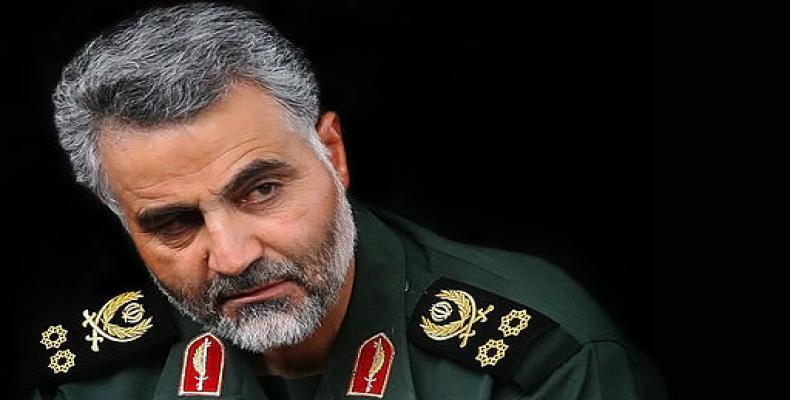United Nations, July 8 (RHC)-- A senior UN human rights investigator says the United States’ assassination of top Iranian commander Lieutenant General Qassem Soleimani in Baghdad was an “unlawful” killing in violation of the international law.
Agnes Callamard, the UN special rapporteur on extrajudicial, summary or arbitrary executions, said that the U.S. has failed to provide sufficient evidence of an ongoing or imminent attack against its interests to justify the January drone strike on General Soleimani's convoy as it left Baghdad airport.
“Absent an actual imminent threat to life, the course of action taken by the U.S. was unlawful," Callamard wrote in a report. The drone attack “violated the UN Charter,” Callamard added, calling for accountability for targeted killings by armed drones and for greater regulation of the weapons.
"The world is at a critical time, and possible tipping point, when it comes to the use of drones. ... The Security Council is missing in action; the international community, willingly or not, stands largely silent," Callamard, an independent investigator, told Reuters.
Callamard is due on Thursday to present her findings to the Human Rights Council, giving member states a chance to debate what action to pursue. The United States is not a member of the forum, having quit two years ago.
On January 3rd, the U.S. assassinated General Soleimani, commander of the Quds Force of Iran's Islamic Revolution Guards Corps, and Abu Mahdi al-Muhandis, the second-in-command of Iraq’s Popular Mobilization Units (PMU), and a group of their companions in Baghdad.
Both commanders enjoyed deep reverence among Muslim nations over their endeavors in eliminating the U.S.-sponsored Daesh terrorist group in the region, particularly in Iraq and Syria. The operation was conducted with the authorization of U.S. President Donald Trump.
Iran has issued an arrest warrant and asked Interpol for help in detaining U.S. President Donald Trump and several other U.S. military and political leaders who were behind a January drone attack assassinating Lieutenant General Qassem Soleimani.
Prosecutors in Tehran say Trump, along with more than 30 others, was involved in the January 3rd assassination, and face murder and terrorism charges.
Tehran has requested that a red notice be put out for Trump and the others, the highest-level notice issued by Interpol that seeks the location and arrest of the individuals named. Under a red notice, local authorities make the arrests on behalf of the country that requested it. The notices cannot force countries to arrest or extradite suspects, but can turn the spotlight on government leaders and limit the suspects' travel.


